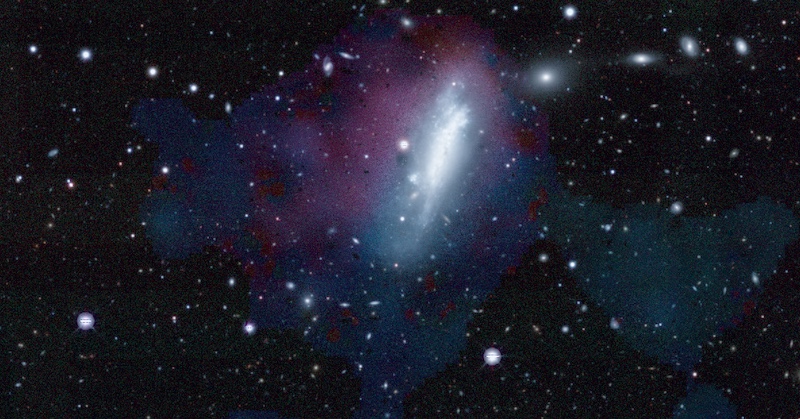Higher Degree by Research Application Portal
| Title | Dark Galaxies |
|---|---|
| Supervisor | Prof Lister Staveley-Smith |
| Course | Doctor of Philosophy |
| Keywords | Radio astronomy, galaxies, SKA, WALLABY |
| Research area | Physical Sciences |
| Project description | The Widefield ASKAP L-band Legacy All-sky Blind surveY (or WALLABY) is a major survey that is now running on the Australian SKA Pathfinder (ASKAP), which is an innovative imaging radio telescope located in an extremely radio quiet zone (the Murchison Radio-astronomy Observatory) in Western Australia. The aim of WALLABY is to use the powerful widefield phased-array technology of ASKAP to observe most of the southern sky in the 21-cm line of neutral hydrogen (or HI) at 30-arcsec resolution, thereby detecting and imaging the gas distribution in hundreds of thousands of external galaxies in the local Universe for the first time. This will allow us to gain a much improved understanding of the processes involved in galaxy formation and evolution, and the role of stellar and black hole feedback, gas accretion and galaxy interactions in these processes. Due to its excellent combination of resolution and sensitivity, WALLABY is predicted to find a new population of dark and low optical surface brightness galaxies created as a result of tidal interactions, gas stripping or due to inefficient star formation processes. This project will involve examining methods for ensuring the reality of dark galaxy candidates and engaging in follow-up research to investigate their astrophysical origin. |
| Opportunity status | Open |
| Open date | 27 Aug 2024 |
| Close date | 31 Dec 2026 |
| School | Graduate Research School |
| Course type | Doctorates |
| Description | The Doctor of Philosophy (PhD) is a program of independent, supervised research that is assessed solely on the basis of a thesis, sometimes including a creative work component, that is examined externally. The work presented for a PhD must be a substantial and original contribution to scholarship, demonstrating mastery of the subject of interest as well as an advance in that field of knowledge. Visit the course webpage for full details of this course including admission requirements, course rules and the relevant CRICOS code/s. |
| Duration | 4 years |
Guidance
